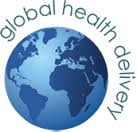
Access to health technologies continues to be a key obstacle for endemic countries in the fight against malaria. Inefficient interfaces between the public and private sector keep health systems from functioning effectively.

In addition to supply chain and commodities challenges, malaria eradication faces fragile linkages at the local, regional, and country level that can be further exacerbated by political, economic, and health systems related factors. PolicyMaker, a software program developed by Michael Reich, PhD,Taro Takemi Professor of International Health Policy at Harvard T.H. Chan School of Public Health, provides an effective tool for political analysis. As a political analysis tool, PolicyMaker offers public health and other types of professionals a framework to analyze stakeholder intentions and actions; develop political strategies; and assess political feasibility. Applying this systematic approach can help professionals envision potential outcomes and apply political strategies that could ultimately lead to the adoption of more effective health policies.

Primary challenges in the malaria supply chain include procurement and forecasting limitations, inventory issues, and transportation related obstacles. These critical issues are relevant throughout all stages of disease control and elimination efforts—from the pre-elimination phase all the way through the elimination phase—at country and regional levels. Prashant Yadav, PhD, Director of the Health Care Research Initiative at the William Davidson Institute at University of Michigan, led the advanced module on Supply Chain Management at the 2012 Science of Eradication: Malaria leadership course at the Harvard Business School. A leading expert on pharmaceutical and health care supply chains in developing countries, Dr. Yadav serves as an advisor in the area of pharmaceutical supply chains to the Bill & Melinda Gates Foundation, World Bank, World Health Organization, UK Department for International Development and many other global health organizations.

In 2011, Professor Paul Farmer and GHDonline, a product of the Global Health Delivery Project at Harvard University, co-organized Rethinking Malaria: A Leadership Forum with Professor Michael Porter and Professor Dyann Wirth of the Harvard T.H. Chan School of Public Health.
GHDonline’s Malaria Treatment & Prevention community includes policymakers, national control program professionals, and practitioners dedicated to problem-solving and exchanging best practices with the goal of improving the prevention, management, and treatment of malaria.

Access to health technologies continues to be a key obstacle for endemic countries in the fight against malaria. Inefficient interfaces between the public and private sector keep health systems from functioning effectively.
Uncertainty in demand projections can exacerbate the challenge of controlling malaria, creating supply shortages or expiring drugs. This compounded with difficulties supplying the people in need with drugs, insecticides, and bed nets, can leave a significant portion of the population at risk. Despite numerous attempts to improve procurement and the supply chain in Africa, there is still a need for more reliable distribution.
Priority areas of focus for Defeating Malaria include:

Faculty and students from across the University, including those from the Harvard Business School (HBS), the Harvard T.H. Chan School of Public Health, the Harvard Medical School (HMS), and the Faculty of Arts and Sciences bring unique perspectives on how to improve access to health technologies as well as best practices on supply chain coordination from other areas with products with uncertain demand. By identifying operational changes that better match demand for malaria interventions with the supply, new opportunities exist to strengthen malaria supply chains around the world.

Professor Jessica Cohen, Assistant Professor of Global Health at the Harvard T.H. Chan School of Public Health, is also Malaria Technical Adviser with the Clinton Health Access Initiative. She is currently working on a number of field trials in Africa related to appropriate treatment for malaria, technology adoption, messaging and behavior change and pharmaceutical supply chains. These include a study into whether subsidies for over-the-counter malaria tests in African pharmacies can be used to encourage adoption of the tests and reduce over-treatment with malaria medicine. She has also conducted a study of the bed net market in rural Kenya, with findings indicating that a reduction in subsidy from 100% to 90% (which represents an increase in price from $0 to $0.60) led to a significant drop in bed net uptake. Conversely, women who paid for a bed net were no more likely to use them than those who received bed nets for free, suggesting that uptake is very sensitive to price, but usage is not.
Ministers of health have responsibility for one of the most complex government portfolios – maintaining public health services, ensuring availability of essential health and emergency care, negotiating for scarce resources and managing public expectations.
The Ministerial Leadership in Health (MLIH) Program is a joint initiative of the Harvard T.H. Chan School of Public Health and the Harvard Kennedy School in collaboration with the Children’s Investment Fund Foundation. Launched in 2012 by Julio Frenk, former health minister and dean of the faculty at the Harvard T.H. Chan School of Public Health, the Program aims to recognize and promote transformational leadership among ministers of health as an essential element in sustainable health systems strengthening, improving service delivery and better health outcomes. As part of the program, ministers are asked to identify a single key health challenge facing their home country and to apply knowledge gained during the program to reform it. When ministers return to their home countries, Harvard faculty and technical advisors offer support in carrying out the reform.
The Global Health Delivery Online (GHDonline) initiative at HMS is a platform of expert-led communities and offers the Malaria Treatment & Prevention Network – this virtual community is made up of policymakers, national control program professionals, and practitioners who problem solve and exchange best practices in this community with the goal of improving the prevention, management, and treatment of malaria.
Numerous Harvard faculty and researchers contribute to topics such as diagnostics and treatment; operations and logistics; prevention; vector control; and volunteer or work opportunities. The GHDonline is supported by the following Harvard founding collaborators:
